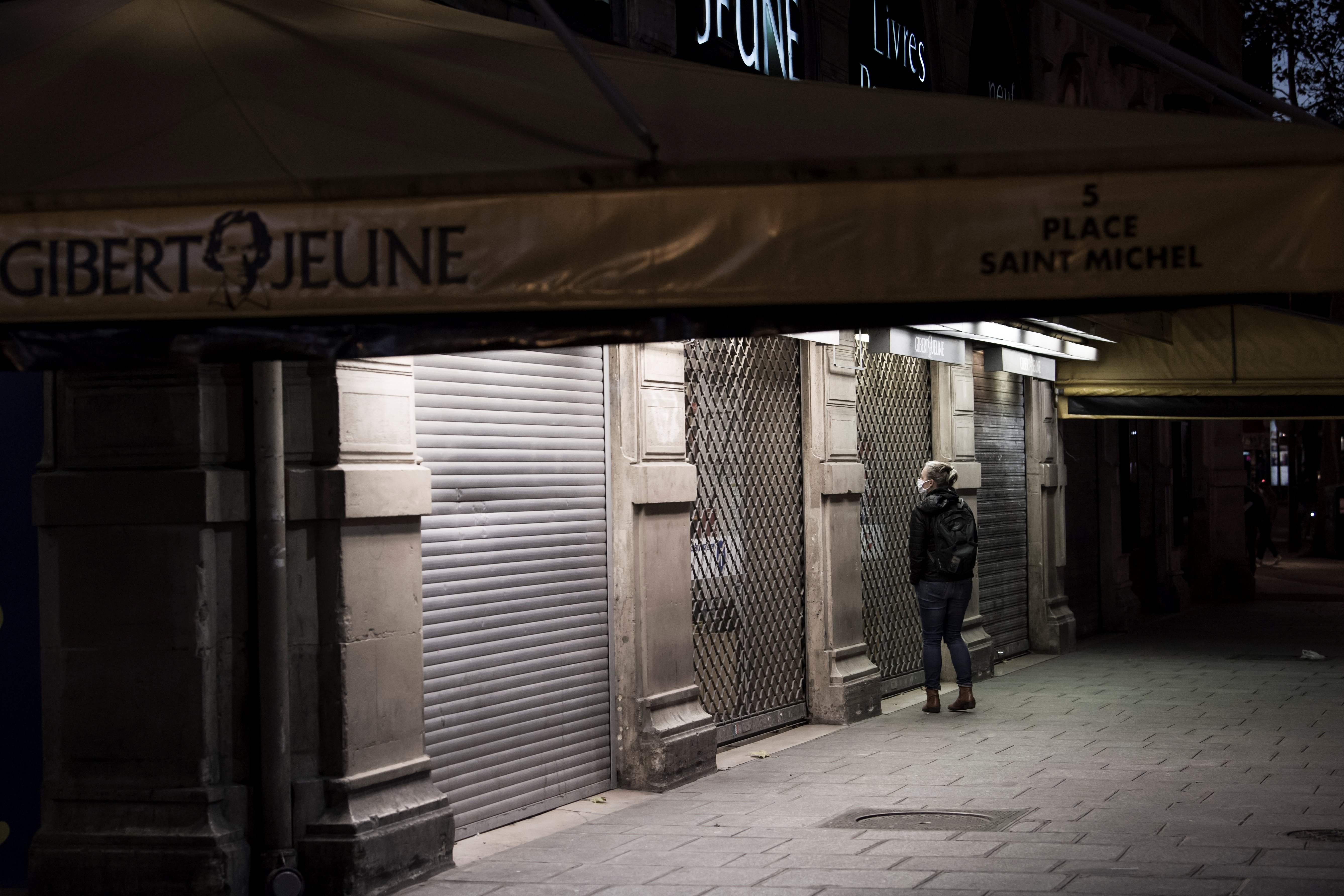Coronavirus France: Paris to see even tighter lockdown restrictions
Some residents are not respecting rules and putting large number at risk, mayor says

Paris will be placed under more restrictions on top of France’s second national lockdown, the city’s mayor Anne Hidalgo told BFM TV early on Thursday
More shops will have to shut earlier in the evening in a bid to curb the worsening of the deadly second wave of the coronavirus pandemic in the city, Hidalgo said.
In addition to the shops that have closed or must shut early under France’s second national lockdown, the new measures will force certain shops selling takeaway food and drink to shut at 10 pm local time.
“When you get people who are not playing by the rules of the game and are therefore putting at risk the health of a large number of people, that is when you need to put in place new restrictions,” Hidalgo said.
France is the European country worst-hit by the second wave of infections so far.
People in France are only allowed to leave their homes to buy essential goods, attend medical appointments, exercise for one hour a day and go to work — although working from home is recommended.
On Wednesday, France reported 40,558 new cases and a further 385 deaths, taking the country's total death toll to 38,674. The day before, the country had 854 confirmed coronavirus deaths, the highest death toll recorded by any European country after the summer.
In Paris, one person was becoming infected with Covid-19 every 30 seconds, while a Parisian is admitted to hospital with the disease every 15 minutes, Health Minister Olivier Veran told RTL radio.
On 30 October, France began enforcing a second national lockdown to last until 1 December after president Emmanuel Macron said the pandemic had overwhelmed the country.
The government closed all non-essential shops, such as those not selling food or medicines, and on Sunday prime minister Jean Castex announced a ban on the sale of ‘non-essential’ items in supermarkets.
People have to stay within 1km of their residence and have to carry a form stating their reason for being outside whenever they leave their homes.
But French authorities believed that there were still too many people out at nighttime in Paris and that stricter measures were necessary to keep the pandemic in check.
The French government signalled yesterday that it could reimpose a night curfew on Paris amid government frustration that people were ignoring the lockdown.
An anonymous French government source told Reuters that “clandestine parties, raves, private dinners” were taking place across the city.
“It’s unbearable for those who respect the rules to see other French people flouting them,” government spokesman Gabriel Attal told BFM TV. “There is an attitude of what will be will be. We need to take all the steps needed to fight the epidemic.”
France dramatically slowed the spread of the coronavirus in the spring with one of Europe's most draconian lockdowns. But 10 months into the pandemic, and with winter drawing in, many people are reluctant to endure another period of confinement.
Several other European countries have decided to adopt new restrictions as the second wave of infections grips Western Europe, stirring resistance and protests.
On Wednesday night, Italian prime minister Giuseppe Conte announced new lockdowns in the four worst-affected regions in the country and the tightening of restrictions elsewhere as Italy’s caseload continues to rise.
The regions of Piedmont, Calabria, Valle d’Aosta and Lombardy, the first coronavirus outbreak area in the West in the spring, will go into a second full lockdown on Friday until at least 3 December.
Italians in regions under lockdown will only be allowed to leave their homes for work, health reasons or “necessity”. Only essential shops, which include those selling food and medicines, newsstands and tobacconists, will be able to remain open.
The government’s announcement followed weeks of protests against restrictions in major Italian cities, while several of the country’s top doctors called for tighter measures, saying that the pandemic has been out of control for weeks and that hospitals in Milan were overwhelmed.
Italy reported 30,550 new confirmed coronavirus cases and 352 deaths on Wednesday.
A four-week nationwide partial shutdown took effect this Monday, 2 November, in Germany, where no more than 10 people from at most two households are allowed to convene at one time.
On Thursday, Norwegian PM Erna Solberg adopted new measures to fight the pandemic, which included a ban on bars serving food and drink after midnight.
He said Norway was close to losing control of the pandemic and the situation was very serious, urging residents to stay at home and limit social interactions as much as possible in the coming weeks.
Belgium, the European country with the highest death toll per 100,000 residents, introduced a partial lockdown last weekend, restricting travel and shopping and making remote working mandatory wherever possible.
The country closed all gyms, swimming pools and other leisure facilities as well as non-essential shops requiring close contact, including hairdressers. For the next six weeks, family contact is reduced to only one person outside of the household.
“These really are the last-chance measures and it is up to all of us to make sure that these measures produce a result,” Prime Minister Alexander De Croo said when he announced the measure.
Additional reporting by Reuters
Subscribe to Independent Premium to bookmark this article
Want to bookmark your favourite articles and stories to read or reference later? Start your Independent Premium subscription today.

Join our commenting forum
Join thought-provoking conversations, follow other Independent readers and see their replies